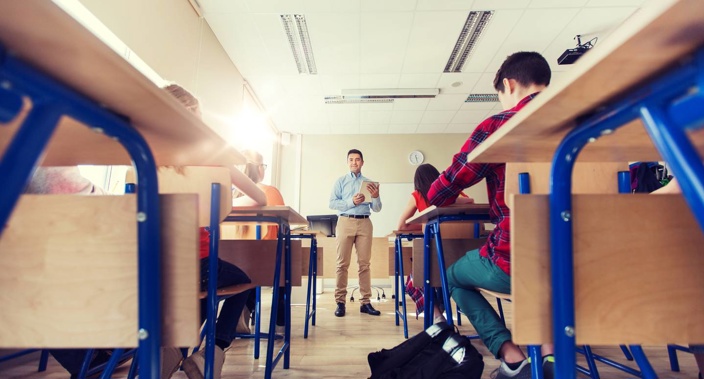
More than 25,000 school staff and students across New Zealand are thought to be currently isolating with Covid-19 as the virus creeps into around 60 per cent of the country's schools.
Schools and early child education centres have notified the Ministry of Education of 25,059 Covid cases in the 10 days to Monday, including 6781 on Sunday and Monday alone.
The number does not include household contacts who must also isolate for 10 days.
In the past 10 days, 63 per cent of schools around the country have notified the MoE of at least one positive case.
The number of schools impacted in Auckland is much higher than the rest of the country with 84 per cent of schools notifying of at least one case, compared with 66 per cent in Wellington.
It comes as principals in their 40s and 50s are reportedly quitting their jobs due to Covid dramatically changing the profession, making it more stressful.
As schools deal with an ongoing rotation of students and teachers isolating, Principals Federation president Cherie Taylor-Patel said a principal's job was now much more administrative and they were on call 24/7 as they managed their schools amidst the pandemic.
"In the last couple of years we've not only been leaders of teaching and learning, we've also been community leaders and also crisis leaders in the whole Covid pandemic."
She said the trend of principals burning out and walking away from the job has been around longer than the Omicron outbreak and was a global issue.
"They're needing to recover from sustained pressure."
A number of high schools around the country have adopted a roster system for students attending school to help manage staffing restraints meaning they engage in both onsite and remote learning.
International School of Geneva educator Conrad Hughes said the style of learning needed to change in the context of online learning or a mix of both.
Schools needed to modify what they were doing by reducing the amount of time they were interfacing with the students. "People get exhausted sitting at a screen all day."
He told AM lessons needed to be condensed down and Covid has shown that a lot of teaching and learning in a classroom wasn't done well and it was "waffle". His school had chopped 45-minute lessons to 30 minutes when they were online and scrapped homework.
"You can't expect children to do homework after such an exhausting day in front of the screen and you need to get them away from the screen as well."
He said a lot of experts were suggesting this would have ramifications in time and while you couldn't really make up for lost learning in one sense, you could be mindful about how you are teaching when students return to the classroom.
"It's about quality, it's not about quantity."
One way to compensate for mask wearing and muting one of the most important lifelines - expressions - was by putting much more of an emphasis on mindfulness and checking in with students.
"It's a tough thing to actually have to work through especially growing up that way."
Meanwhile Covid-19 modeller professor Michael Plank believes Omicron won't peak until mid to late March when he expected there to be 1000 people in hospital.
Plank said Auckland could reach its peak about one to two weeks ahead of the rest of the country, effectively creating two peaks.
The first peak would be driven by the Auckland cases and the second peak would be when it reaches the other main centres such as Christchurch and Wellington.
Plank hoped the peak in Auckland was near due to the very high case numbers and therefore hospitalisations in the city.
While those needing ICU care remained very low at this stage, Plank said they were keeping a close eye on the increasing infections in older or unvaccinated groups which could see a spike in hospitalisations.
Take your Radio, Podcasts and Music with you









